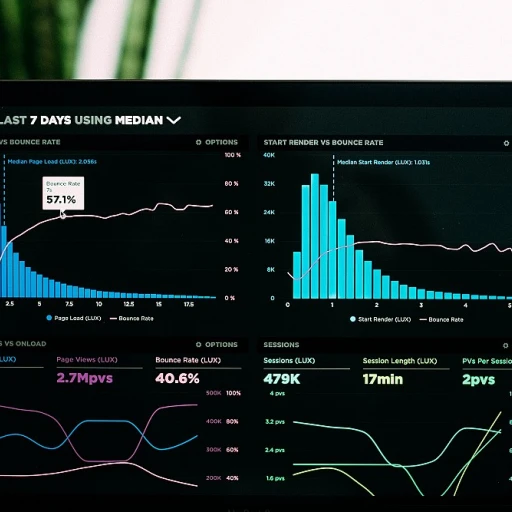The Role of Personal Branding in Social Media Influence
The Essence of Personal Branding on Social Media
In today’s digital-driven world, personal branding has emerged as a key element in steering social media influence. At its core, personal branding is about establishing a unique identity and value proposition that resonates with audiences across different platforms. In the dynamic landscape of social media, influencers leverage their personal brands to create meaningful connections with their audiences, ultimately fostering trust and driving engagement. As influencers navigate their paths, they often mirror the strategies of successful private equity firms. These firms meticulously craft and manage their portfolios to ensure long-term growth and sustained equity creation. Similarly, influencers curate their personal brands, harmonizing their content and interactions to reflect equity in their online presence. This involves not just the production of engaging content but also a keen understanding of their audience’s needs. Effectively managing a personal brand requires a strategic approach akin to that employed by managing directors in private equity firms. A comprehensive strategy involves:- Analyzing Industry Trends: Understanding the dynamics and trends within the social media industry can help influencers stay relevant and innovative.
- Utilizing Technology: Leveraging the latest technology helps in enhancing content delivery and expanding reach.
- Investment in Content Quality: Like equity operations that demand constant portfolio improvements, influencers should invest in quality content that reflects their core message.
- Engaging Management Teams: Just as private equity firms partner with operational teams to enhance company performance, influencers should collaborate with their team to optimize brand strategy and engagement.
Challenges in Defining Personal Branding for Influencers
Defining Personal Branding for Influencers: A Multifaceted Endeavor
Navigating the intricate landscape of personal branding on social media poses an array of challenges for influencers. While personal branding is pivotal for establishing a unique identity that resonates with audiences, pinning down a definitive concept can be elusive.- Diverse Industry Influences: Personal branding varies significantly across different industries. For individuals entrenched in private equity or investment sectors, for example, a brand may lean more towards demonstrating expertise in operational improvements and equity creation, distinguishing them from influencers in lifestyle or fashion domains.
- Balancing Authenticity and Strategy: While authenticity remains a cornerstone of successful personal branding, influencers must balance being genuine with strategic considerations such as aligning with equity firms or management teams. This can include showcasing partnerships with renowned companies or demonstrating leadership as a managing director within portfolio companies.
- Technology and Capital Considerations: In tech-savvy industries, influencers often grapple with integrating the latest technology and capital insights into their personal brand, positioning themselves as connected, forward-thinking professionals in their respective fields.
- International Presence: Influencers operating across multiple countries, like the United States, have to shape a brand that transcends borders while considering local industry standards and cultural nuances.
Strategies for Enhancing Personal Branding
Enhancing Personal Branding Through Strategic Approaches
Crafting a powerful personal brand on social media requires a thoughtful approach, blending creativity with strategic business insight. Influencers need to navigate the intricate landscape of digital platforms by drawing parallels with successful private equity strategies. Leveraging principles from experience in equity firms can amplify personal brand growth and industry presence.- Diversified Content Portfolio: Just as a private equity firm manages a diverse range of portfolio companies, influencers should develop a robust selection of content that reflects their brand’s core message while reaching different audience segments. By adopting a varied content strategy, influencers can ensure they cater to various niches, expanding their reach and enhancing audience engagement.
- Operational Excellence: Consistent content quality and an engaging presence require operational improvements. Drawing from the strategies employed by operating partners, influencers must establish efficient schedules and management processes. This approach ensures not only regular updates but also high-quality production values.
- Team Collaboration: Behind the scenes, many influencers invest in building a strong operational team, much like private equity firms partner with experienced operating partners to enhance portfolio operations. A supportive team can handle tasks ranging from technology management to capital allocation, freeing up influencers to focus on strategic content creation.
- Long-Term Vision: A sustainable personal brand is synonymous with long-term value creation, akin to the capital growth targeted by investment companies. By aligning their digital presence with evolving industry trends and audience expectations, influencers can ensure their personal brands remain relevant and resilient.
The Impact of Social Media Algorithms on Personal Branding
The Complex Relationship Between Social Media and Personal Branding
The influence of social media algorithms on personal branding is profound, impacting how influencers present themselves and their content to potential followers and partners. These algorithms are powerful tools in controlling the visibility of posts, but they can also pose challenges for influencers striving to maintain a consistent personal brand presence.
Social media platforms continually tweak their algorithms, determining which posts get amplified and which remain unseen. For influencers, this can affect their ability to reach and engage with their target audience, consequently impacting their partnerships with private equity firms and operational businesses aiming to invest in their influence.
To navigate these challenges, influencers need to adapt by focusing on content quality and engagement. This could mean collaborating with operational partners and portfolio companies to produce high-caliber content that aligns with both personal and brand values. By establishing equity in the form of trust and authority within their niche, influencers can buffer against algorithmic unpredictability, ensuring that their personal branding efforts remain robust.
Furthermore, understanding the nuances of how algorithms interact with personal branding can provide influencers with actionable insights to inform their strategies. Collaborating with management teams and engaging with partners across industries can offer a competitive edge. These collaborations are crucial as they provide different perspectives that enable influencers to refine their brand strategy and operations to achieve long-term success.
Influencers who harness the power of social media algorithms can position themselves effectively, fostering significant operational improvements and enhancing their market position. Overall, the interplay between these algorithms and personal branding embodies the evolving landscape that influencers must navigate, embodying the principles of equity creation and successful portfolio operations.
Measuring Success in Personal Branding
Evaluating Personal Branding Success
Measuring success in personal branding requires a comprehensive understanding of various factors. For influencers aiming to enhance their brand equity, the journey involves multiple dimensions such as private engagements and public perceptions. Building an effective portfolio of personal achievements and interactions can be vital in defining success.- Engagement Metrics: The level of interactions, including likes, shares, and comments, often reflects the resonance and influence of a personal brand. High engagement can signify strong connections with the audience.
- Brand Equity and Audience Retention: Long-term relationships with followers indicate consistent value delivery, a crucial aspect of brand equity. This aligns with private equity firms managing portfolio companies focused on sustainability.
- Private Partnerships and Collaborations: Collaborations with industry partners, such as equity operating firms, can bolster a brand's credibility and reach. For influencers, these partnerships can lead to robust brand growth through strategic alignments.
- Content Performance: Monitoring content performance is essential. It provides insights into which topics drive audience engagement and what adjustments may optimize brand equity creation over time.
Future Trends in Personal Branding for Influencers
Anticipating Shifts in Influencer Branding
The dynamic landscape of personal branding is constantly evolving, especially in the realm of social media. As influencers adapt to new technologies and shifts in consumer behavior, they must be prepared to face both challenges and opportunities. Here's what to expect in the coming years:- Technology Integration: The role of technology in personal branding will increase as influencers leverage new platforms and tools. Expect a rise in the use of artificial intelligence and virtual reality to create immersive experiences for followers. This could include AI-generated content or AR integrations that enhance user experience.
- Equity in Branding: The concept of equity is gaining traction, with influencers exploring private equity and investment opportunities to diversify their roles. Influencers might partner with companies and firms as operating partners or advisors, leveraging their personal brand to drive operational improvements and contribute to equity creation.
- Complex Algorithm Adjustments: As social media platforms refine their algorithms, influencers will need to remain agile in their strategies. This requires a comprehensive understanding of how algorithm changes impact visibility and engagement, necessitating close partnerships with management teams to optimize content strategies.
- Metrics and Measurement: Measuring success with tangible metrics will become even more essential. Influencers will focus on long-term brand equity rather than short-term gains, working closely with management teams and potentially collaborating with private equity partners to assess their brand's performance and identify growth opportunities.
- Industry Convergence: There is potential for influencers to transition into formal roles within industries, such as becoming part of an operating team in a portfolio company. The skills garnered from managing their personal brands may lead to positions like managing director or vice president in relevant industry firms.













